127,000 households fall into energy bill debt as Albo spruiks cost-of-living relief
More Australians are falling into energy bill debt and forced onto hardship plans, and Daily Telegraph readers are almost unanimous in agreement that a $300 rebate won’t help. Have your say.
NSW
Don't miss out on the headlines from NSW. Followed categories will be added to My News.
The number of NSW households forced onto hardship plans because they can’t pay their energy bills has risen by 97 per cent since the last federal election, and Daily Telegraph readers are nearly unanimous in agreement that a $300 rebate won’t help.
As the Albanese government ramps up its marketing campaign about a suite of cost of living measures which came into place on Monday, the latest hardship figures reveal the untold story.
More than 127,000 households across the country have been forced onto hardship plans by their energy provider with 70,000 of them living in NSW, according to the latest industry figures — the highest of any state or territory and eclipsing the national increase.
The data does not does not include struggling households in the Northern Territory, Western Australia or Victoria, which have different arrangements for helping struggling customers.
Readers of The Daily Telegraph were asked whether the $300 power bill discount spruiked by the Prime Minister would be enough to ease the cost of living pressure, and an overwhelming 95 per cent of the nearly 1000 people who voted said ‘no’.
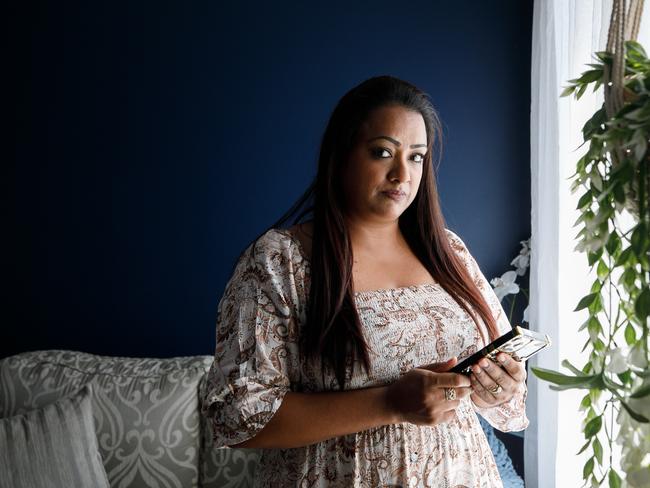
“Every single week since Labor took office, 600 households on average have been plunged into hardship arrangements with their electricity retailer,” coalition energy spokesman Ted O’Brien said.
This has worsened by an average of 50 households per week since the last quarterly report which included data up to the end of December 2023.
The numbers build on another concerning metric for Labor — latest inflation figures that show CPI has jumped again to 4 per cent — that has undermined the government’s messaging that it was bringing the cost of living under control.
Treasurer Jim Chalmers did the TV round on Sunday morning maintaining the government’s policies, which include tax cuts and energy bill relief, will bring inflation under control despite the recent jump in CPI.
From July 1, Australians earning between $30,000 and $200,000 will get a new tax cut ranging from $6.81 to $87.10 a week and every household will get a $300 energy bill discount spread across the next financial year.
“We are confident, but not complacent about inflation in our economy. What we’ve seen in the last couple of years is that inflation has moderated really quite substantially, but it doesn’t always moderate in a straight line,” he said.
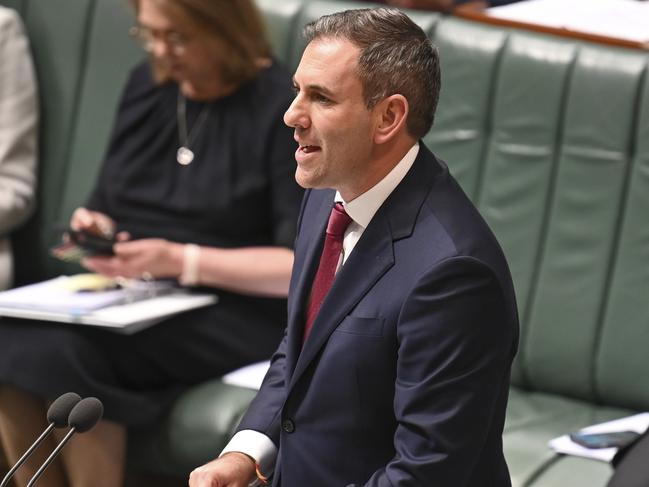
“Inflation is still too high, but it’s much lower than what we inherited from the Coalition, and we know that our policies are helping.”
Mr Chalmers acknowledged that Treasury forecasts — which had been more optimistic about inflation returning to the two to three per cent band — were “uncertain”.
“There’s always an element of uncertainty when it comes to forecasts about the economy, but especially right now,” he said.
Prime Minister Anthony Albanese claimed Labor was hitting the “sweet spot” between curbing inflation and helping households.
“Our objective here (is) to make sure that we get through the short-term issues which are there for cost of living pressures on families,” he said.

Judo Bank chief economist Warren Hogan said the cost of living benefits would bring down headline inflation — for example the cost of energy to consumers — but do nothing for underlying inflation.
Mr Hogan predicts there will be more interest rate hikes to come in the near future.
“I’m forecasting the headline CPI to be lower than 3 per cent by the end of this year or next year … but information is more like 3.5 per cent of 3-and-a-quarter,” he said.
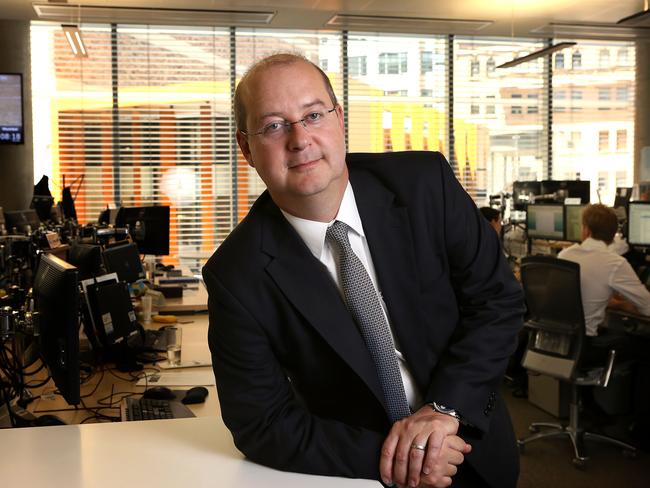
“(The lowered inflation) is artificial, it’s not real. The inflation is still there.”
Mr Hogan said history showed that the real interest rate has to be “at least another per cent” higher than inflation in order to bring it down.
Right now the cash rate is sitting at 4.35 per cent while inflation is at 4 per cent.
“With rate hikes going for more than two years it shows the level of interest rates isn’t high enough, it’ll need to be higher,” he said.
“The fact is for the last three months we keep getting surprised by the inflation.”
Neutral Bay couple Amber Knight and Troy Wilson have turned to wearing more clothes and using hot water bottles and heat packs to avoid a spike in their energy bills.
“We have an oil heater which is more energy efficient but we mostly try not to use it, we use hot water bottles, heat packs and just put on more clothes,” Ms Knight said.
Mr Wilson added: “I always find myself so cold.”
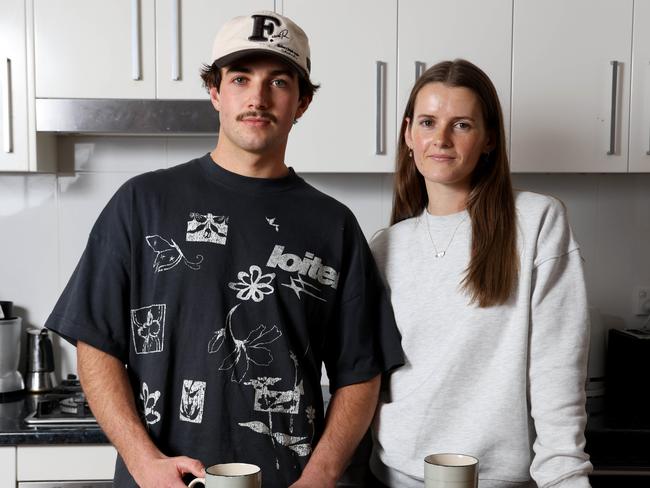
The couple who rent their two-bedroom apartment said they feel “anxious” in the lead up to lease renewals and have cut back on how often they drive to keep costs in check.
“Having a car is a huge expense. Keeping it on the road costs so much money,” Mr Wilson, 20, said.
“There is not one specific thing that we are feeling because everything adds up.”
Quakers Hill mum-of-three, Iram Siddiqui can’t remember a time when electricity bills were higher than now.
Ms Siddiqui spent years as a stay at home mother, looking after her three children Mariam, 11, Aamir, 8, and Maahir, 6, but was forced to go back to work to help her husband pay the bills.
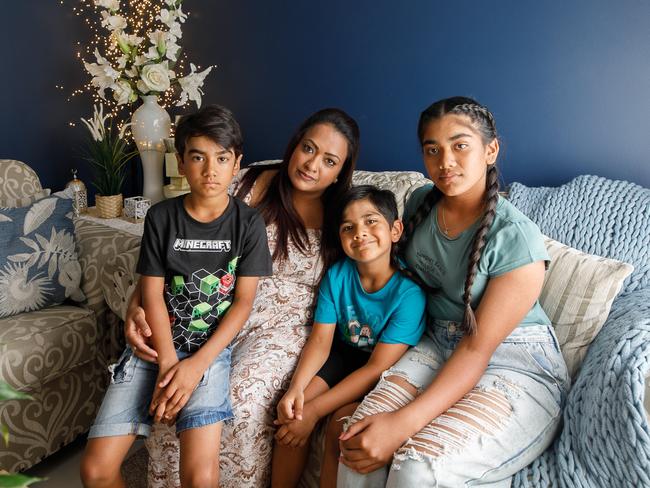
“There was one income in the family, and because of some health issues I couldn’t work as much,” she said.
“It’s got to the stage where I had to get up on my feet no matter how sick I felt, to be able to help my husband out with the bills because every little bit helps.”
To reduce costs the family changed their heaters to gas, and rug up with jumpers and socks while inside but Ms Siddiqui said with three young children she has to keep the house warm in winter to prevent them from getting sick.
“It’s a juggle because every single thing you do in your life costs money, not just electricity, it’s healthcare for the kids,” she said.
For the Siddiqui family, the Albanese government’s $300 electricity rebate will barely touch the sides.
“Big deal $300 – you’re not going to notice it,” she said.
“It’s just going to make us smile for 30 seconds but it is not going to put a dent in it.”
Do you have a story for The Daily Telegraph? Message 0481 056 618 or email tips@dailytelegraph.com.au




